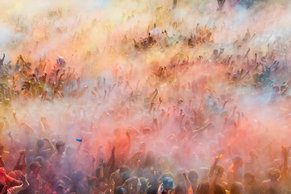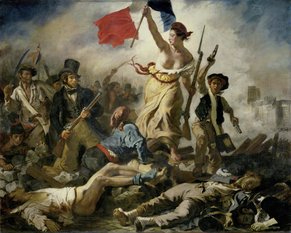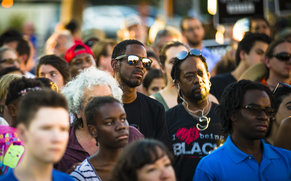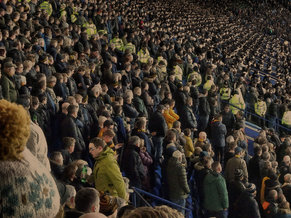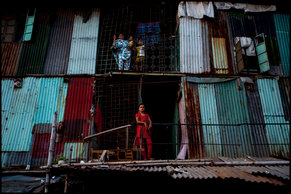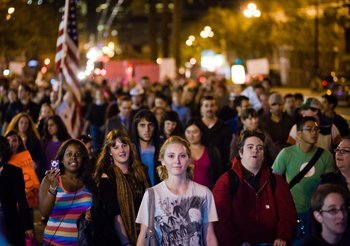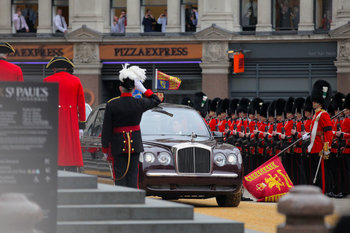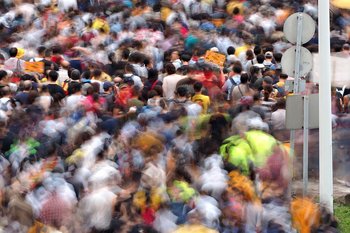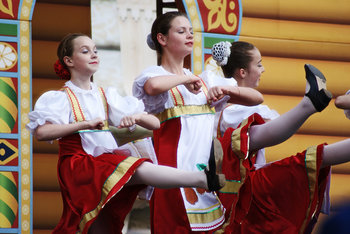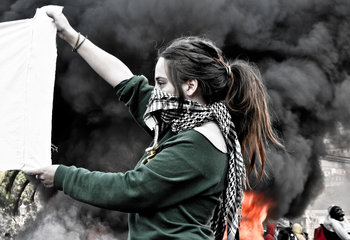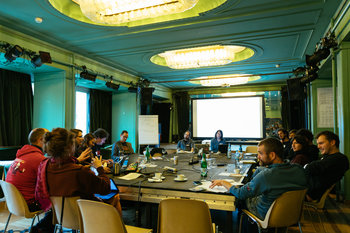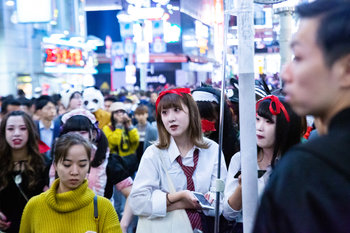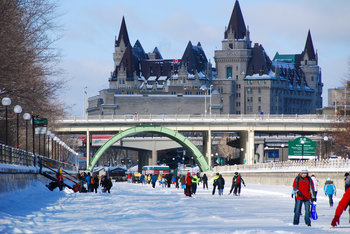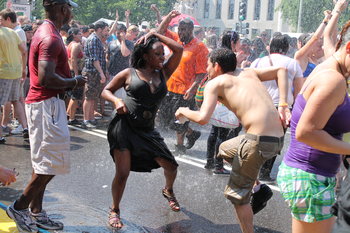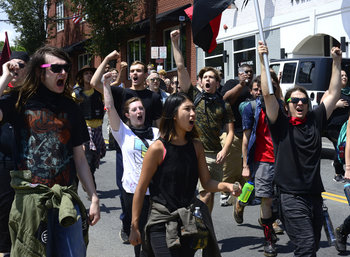
Civility
Civility is respect for people and the established conventions of society. This implies that you have goodwill towards others in society and attempt to use the systems established by society to resolve differences in a well mannered way.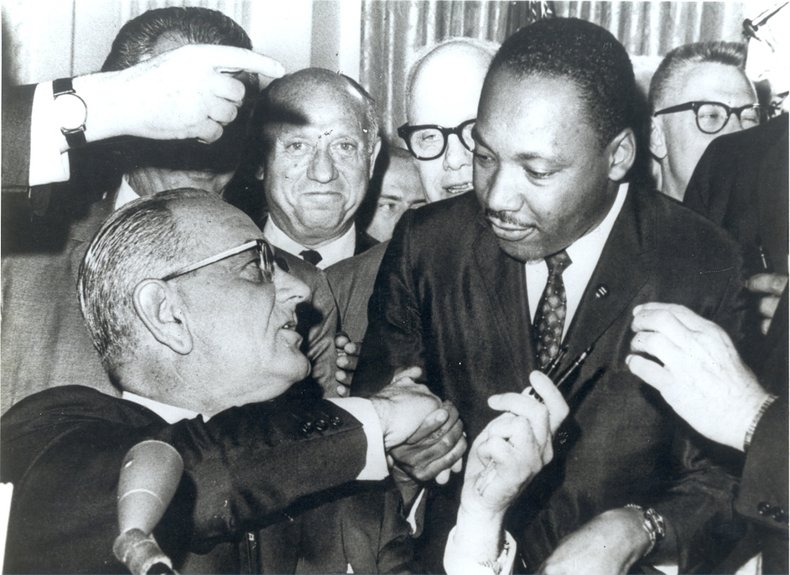
Norms
Norms are shared expectations for behavior. This helps people to get along without making too many formal rules that become oppressive and high maintenance. For example, there is a norm that you not talk or play with a mobile device during certain types of presentation or performance such as a classical music concert.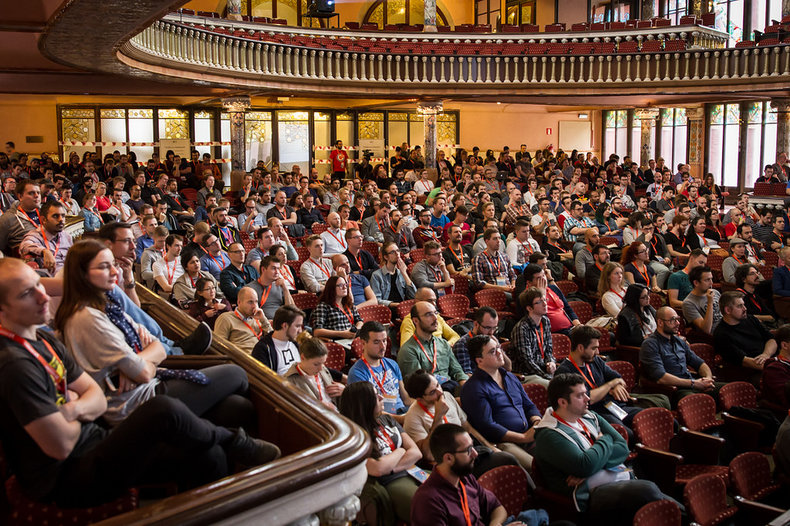
Laws & Regulations
Laws and regulations designed such that the actions of individuals or firms not violate the rights of others or threaten the quality of life of society as a whole. For example, firms that are prohibited for creating certain types of economic bads that harm the health of people and the environment.
Rights & Freedoms
Rights and freedoms are foundational principles established by a society to guide the formation of laws and regulations. Laws may be designed to prevent one person from infringing the rights of another. Rights and freedoms also limit the scope of the law such that society can't over-regulate every aspect of life such to damage economic opportunity and the pursuit of happiness in order to satisfy the most boring members of society who want to prohibit everything.
Family
Family is a basic unit of society. Families resemble a small scale society and culture with their own internal norms and traditions. Society places expectations on families. For example, the expectation or requirement that children attend school until a predefined age.
Culture
Cultures are similar to societies in that they have their own sets of norms and expectations. Societies may embrace freedoms that allow people to follow their cultural norms within reason. However, in many cases a culture is asked to conform to the rules of a society. This can occur when a society has hundreds of identifiable traditional cultures, subcultures and super cultures such that there is often a large difference between the norms of cultures and society. For example, a city may ban firecrackers that are a beloved part of a traditional holiday or festival. If adherents to a culture are upset by this they may work within the system to try to earn some exceptions such as a designated area for firecrackers in a non-residential area.
Politics
The means of making decisions as a society. Society may be controlled by a small elite that derive their authority from tradition, wealth or status as administrators. Alternatively, a society may be highly participative whereby all members of society have a voice in decisions, usually via a system of voting for representatives. In some cases, there is a divide between official power structures and de facto power. For example, a country with democratically elected officials who are nevertheless controlled by a wealthy elite. If the population of society is largely repressed by the political system a revolution can occur whereby society is completely overturned. This results in a period of instability and doesn't necessarily result in the ideal society envisioned by the revolutionaries.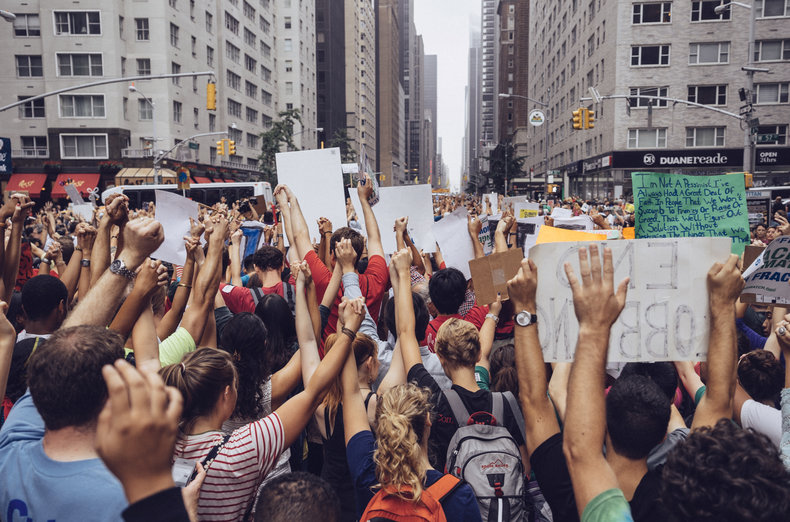
Accountability
The degree to which authority is tied to accountability. A society may hold leaders accountable for breaking the rules. Alternatively, a society may protect an elite and preserve their status even if they behave badly.
Identity
Society functions best when its members have shared purpose, values and a general sense of fellowship. In some cases, people solely identify as individuals with no obligations to get along with the greater society. Likewise, people may fragment into tribes based on shared heritage, characteristics, values, social status and interests. Such tribes may be cultural in nature or may see themselves as an alternative society such that they fail to identify with society as a whole. In order to encourage fellowship and cooperation society may promote shared culture, pastimes, symbols, holidays, history and values. For example, sports, festivals and holidays that tend to unify residents of a city or nation.
Soft Infrastructure
Soft infrastructure are institutions and systems that serve as a foundation for the quality of life of a society. This includes areas such as education, healthcare, policing, courts, regulatory bodies and public services.
Hard Infrastructure
Hard infrastructure are physical entities that are shared by society for purposes of efficiency and economic well being. Examples of hard infrastructure include bridges, rail networks, roads, ports, airports, parks, canals, telecom networks and energy infrastructure such as a grid.
Taxation
Infrastructure, particularly soft infrastructure, is expensive such that taxation is a near universal feature of a modern society. Taxation may be progressive whereby the rich pay a higher percentage of their earnings. Alternatively, it may be regressive whereby the poor or the middle class have the highest tax burden despite less ability to pay.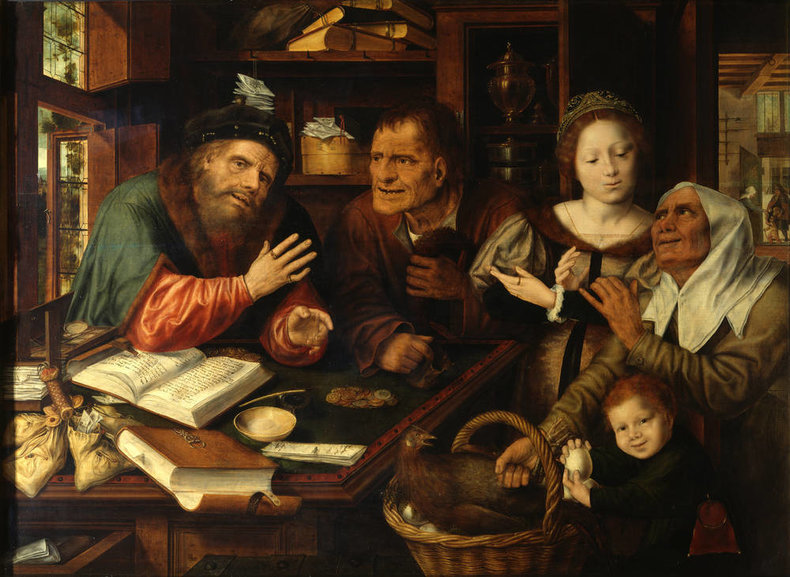
Economy
A society provides a foundational economic system with regulated services such as money and markets. Ideally, regulations in areas such as competition, consumer protection, environmental and industry practices provide a lively, efficient and rational system for economic production.
Heritage
The history of a society including its failures and triumphs that are transmitted and preserved in order to learn from the past and celebrate it.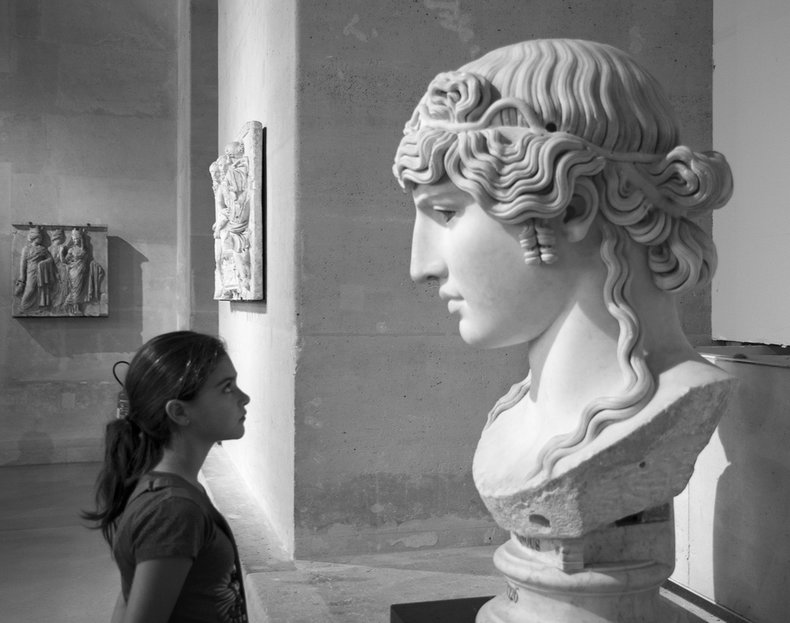
Traditions
Traditions are living elements of history that are passed from generation to generation. This creates a sense of continuation with the past and may promote a sense of shared identity and social harmony. For example, the stories, symbols, pastimes and holidays of a nation that serve to promote a sense of shared identity, purpose and values.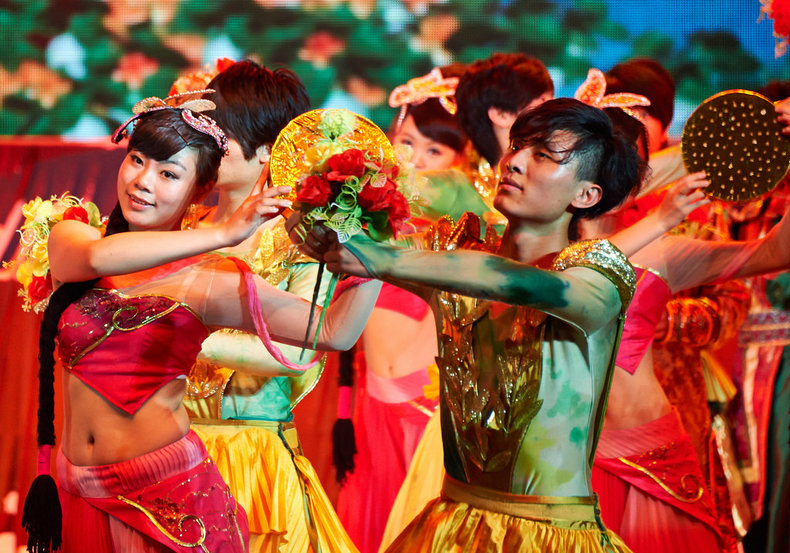
Community
The degree to which people interact in a society and feel a sense of community in their life.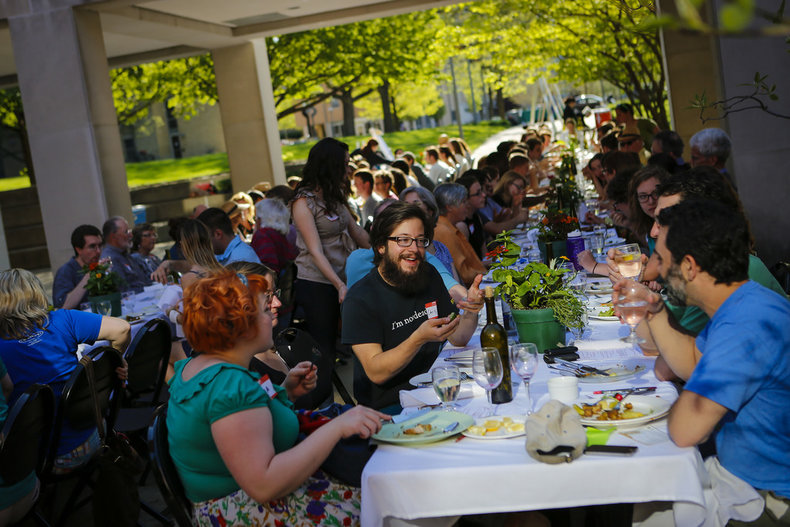
Knowledge
Advanced societies are built on a foundation of knowledge including know-how, scientific research and cultural forms of knowledge such as literature. The education systems of a society reduce knowledge waste by transferring important knowledge to each successive generation.
Social Status
People within a society tend to rank the social position of themselves and others according to factors such as looks, fashion, authority, wealth, popularity, fame, youth, membership, accomplishments, intelligence and coolness. The desire for social status is a strong form of motivation in many individuals, families and groups.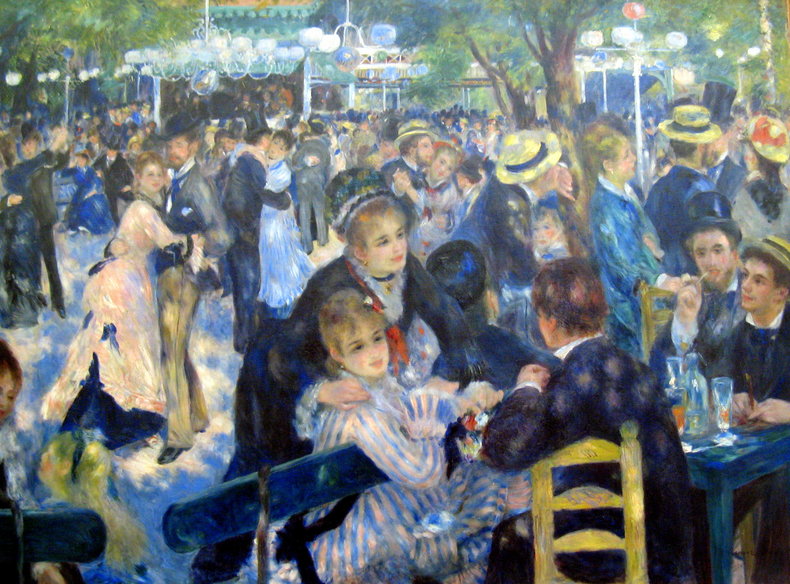
Values
Foundational values such as a society that has a long term orientation that manages risk to current and future generations versus a society that values immediate indulgence over all else.
Communication
Society is orchestrated with a process of communication that includes government, media and word of mouth information flows. The media plays a critical role in society as an independent reporter of fact. If the media is politically connected, biased or intimated communication processes may breakdown with confusion over fact versus propaganda.
Resilience
The ability of a society to endure time. This includes elements of design, prioritization and preparation that allow systems both soft and hard to endure stresses. For example, a nation that cultivates, protects and conserves its resources that is designed to withstand risks such as global supply chain disruptions and disasters.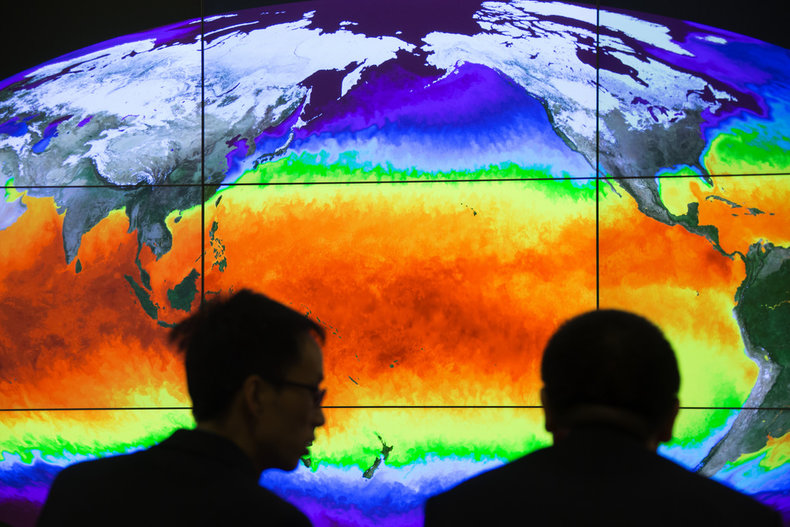
Summary
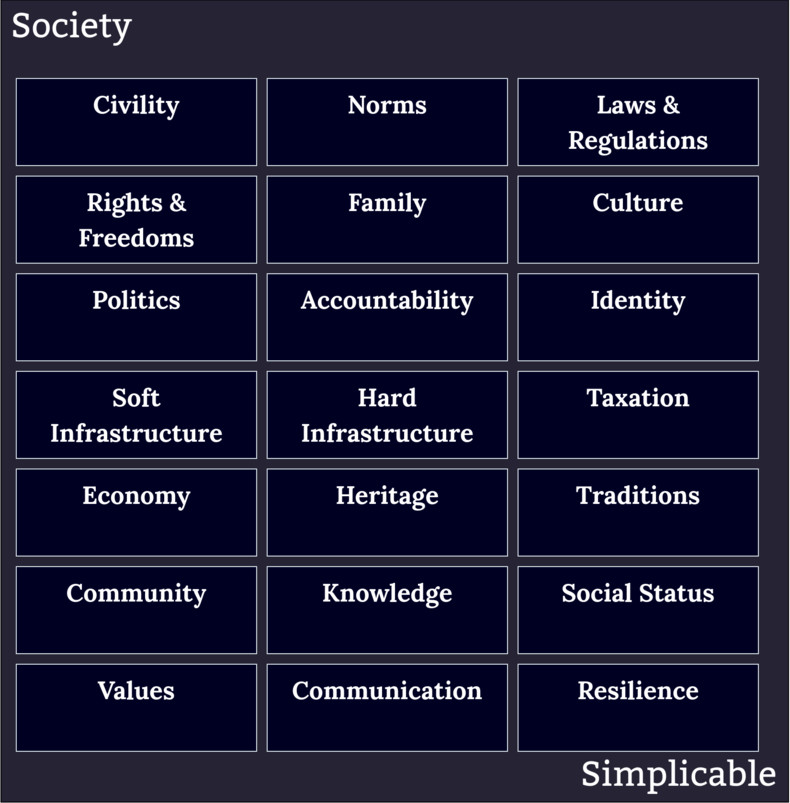
Overview
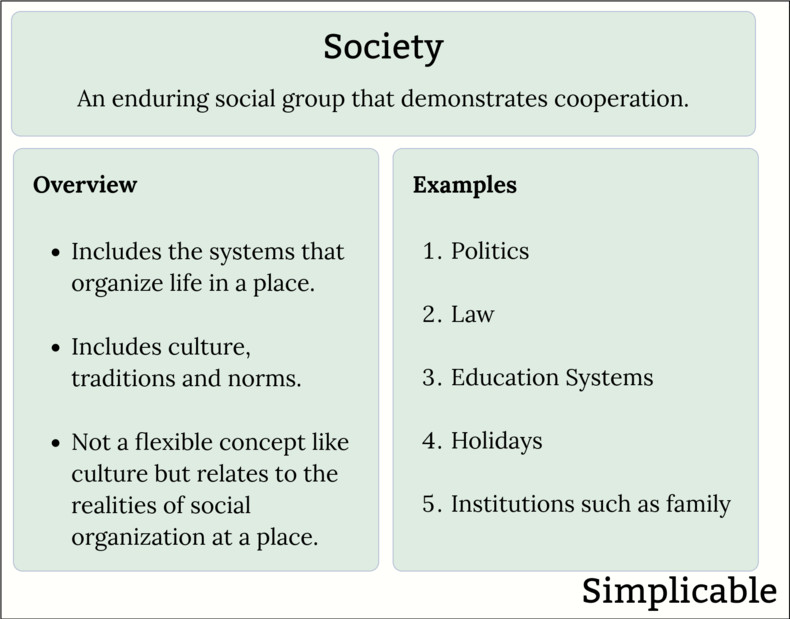
Types of Society
Historically there have been six types of society.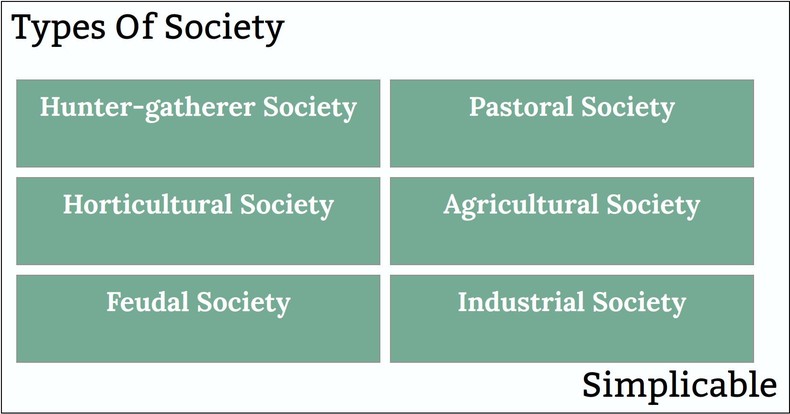
Modern Society
At present, post-industrial societies are emerging that are based on services, experiences and knowledge-based economic activity. The following are common types of modern society.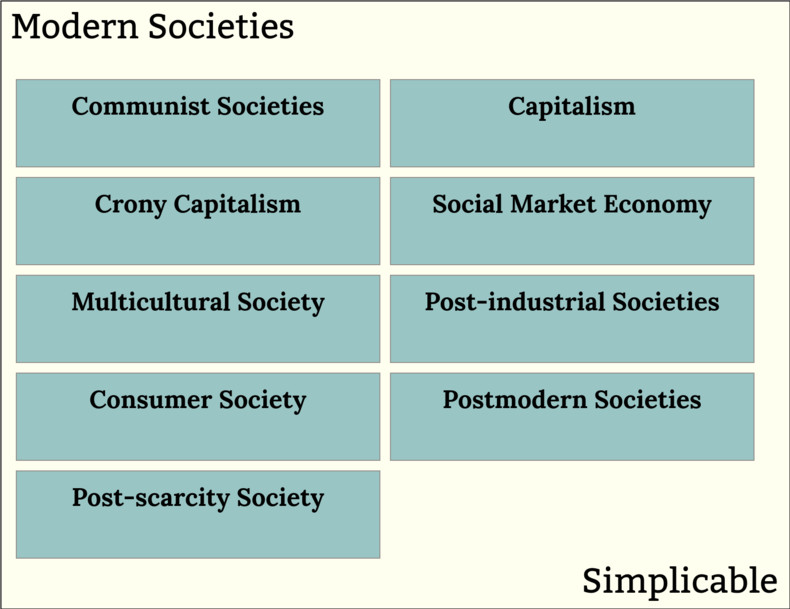
Notes
Multiple societies may overlap at the level of a civilization, nation, region or city.| Overview: Society | ||
Type | ||
Definition (1) | The means by which people who live in the same place cooperate to achieve peace, prosperity and resilience. | |
Definition (2) | An enduring social group that demonstrates cooperation, shared values and fellowship. | |
Related Concepts | ||


